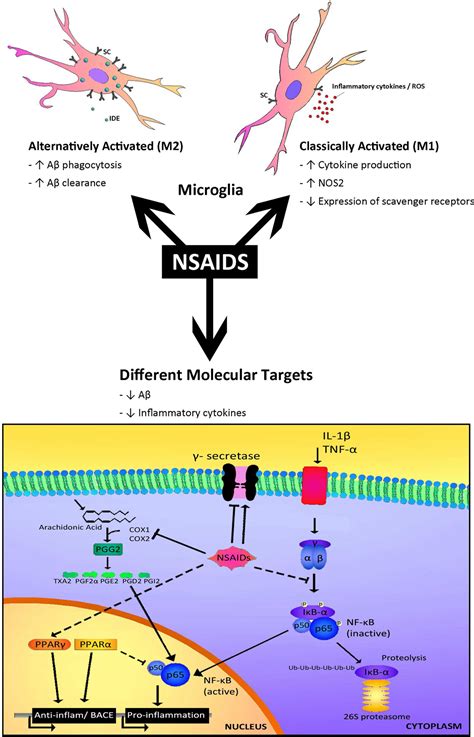Intro
The use of medications to manage pain and inflammation has become a common practice in modern medicine. Among the various types of drugs available, NSAIDs have gained significant attention due to their effectiveness in treating a range of conditions. But what exactly are NSAIDs, and how do they work?
NSAIDs, or Nonsteroidal Anti-Inflammatory Drugs, are a class of medications that are widely used to reduce inflammation, relieve pain, and lower fever. They are commonly used to treat a variety of conditions, including arthritis, menstrual cramps, headaches, and muscle strains. NSAIDs work by blocking the production of certain chemicals in the body that cause inflammation and pain.
The importance of understanding NSAIDs cannot be overstated. With the rising prevalence of chronic pain and inflammatory diseases, the demand for effective treatments has increased. NSAIDs have become a staple in many treatment plans, offering relief to millions of people worldwide. However, it is essential to understand the benefits and risks associated with these medications to use them safely and effectively.
What Are NSAIDs Used For?

NSAIDs are used to treat a wide range of conditions, including osteoarthritis, rheumatoid arthritis, and ankylosing spondylitis. They are also used to relieve pain and reduce inflammation caused by injuries, such as sprains and strains. Additionally, NSAIDs are used to treat menstrual cramps, migraines, and other types of headaches.
Types of NSAIDs
There are several types of NSAIDs available, each with its own unique characteristics and uses. Some of the most common types of NSAIDs include: * Ibuprofen (Advil, Motrin) * Naproxen (Aleve) * Aspirin (Bayer) * Celecoxib (Celebrex) * Diclofenac (Voltaren) * Indomethacin (Indocin)How Do NSAIDs Work?

NSAIDs work by blocking the production of certain chemicals in the body that cause inflammation and pain. These chemicals, known as prostaglandins, are produced by the body's enzymes, specifically COX-1 and COX-2. By blocking the production of prostaglandins, NSAIDs reduce inflammation and relieve pain.
Benefits of NSAIDs
The benefits of NSAIDs are numerous. They offer quick and effective relief from pain and inflammation, making them a popular choice for treating a range of conditions. Some of the benefits of NSAIDs include: * Fast and effective pain relief * Reduced inflammation * Lowered fever * Improved mobility and function * Convenient dosing options (oral, topical, injectable)Risks and Side Effects of NSAIDs

While NSAIDs are generally safe and effective, they can cause side effects and interact with other medications. Some of the common side effects of NSAIDs include:
- Stomach upset and bleeding
- Kidney damage
- Increased blood pressure
- Allergic reactions
- Interactions with other medications (blood thinners, diabetes medications)
Precautions and Warnings
It is essential to use NSAIDs with caution and follow the recommended dosage instructions. Some of the precautions and warnings to be aware of include: * Use the lowest effective dose for the shortest duration possible * Avoid taking NSAIDs with other medications that increase the risk of bleeding * Monitor kidney function and blood pressure regularly * Avoid taking NSAIDs if you have a history of stomach ulcers or bleedingAlternatives to NSAIDs

While NSAIDs are effective in treating pain and inflammation, they may not be suitable for everyone. Some alternatives to NSAIDs include:
- Acetaminophen (Tylenol)
- Corticosteroids
- Muscle relaxants
- Physical therapy and exercise
- Alternative therapies (acupuncture, massage)
Conclusion and Future Directions
In conclusion, NSAIDs are a class of medications that offer effective relief from pain and inflammation. While they are generally safe and well-tolerated, it is essential to use them with caution and follow the recommended dosage instructions. As research continues to evolve, new and innovative treatments for pain and inflammation are emerging, offering hope for improved management and treatment of chronic conditions.To learn more about NSAIDs and their uses, it is essential to consult with a healthcare professional. They can provide personalized advice and guidance on the safe and effective use of NSAIDs.
What are the common side effects of NSAIDs?
+Common side effects of NSAIDs include stomach upset and bleeding, kidney damage, increased blood pressure, and allergic reactions.
Can I take NSAIDs with other medications?
+It is essential to consult with a healthcare professional before taking NSAIDs with other medications, as they can interact with certain medications and increase the risk of side effects.
Are there any alternatives to NSAIDs?
+Yes, there are alternatives to NSAIDs, including acetaminophen, corticosteroids, muscle relaxants, physical therapy, and alternative therapies such as acupuncture and massage.
We hope this article has provided you with a comprehensive understanding of NSAIDs and their uses. If you have any further questions or concerns, please do not hesitate to comment below. Share this article with your friends and family to help spread awareness about the safe and effective use of NSAIDs. Take the first step towards managing your pain and inflammation today!
